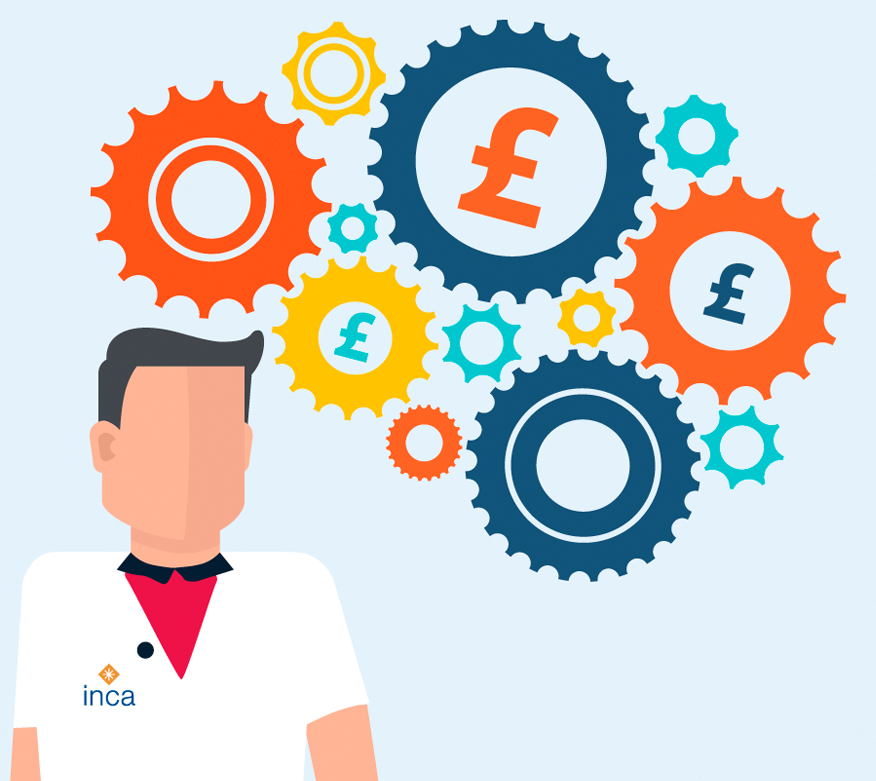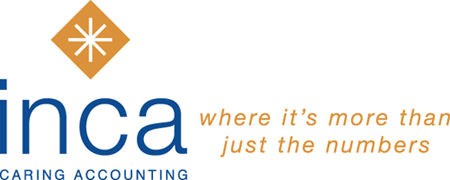Being in business is not simply about making money – it’s about ensuring you get to keep as much of what you make as possible
Every penny and pound saved represents more profit for you, so making sure overheads and operational costs are as keen as they can be is an ongoing task. In just the same way, making sure your business is as tax efficient as possible will ensure your hard earned money stays in your business, rather than being claimed by the tax man.

This was the key message of a presentation I gave to an audience of female Oxfordshire entrepreneurs recently – semi finalists in the 2014 NatWest Venus Awards which Inca sponsors.
Because no one likes to pay any more tax than they absolutely have to, I thought I’d share the tips I gave to the ladies here:
-
Get your business structure right
How you choose to set up your business can make a big difference to how tax efficient you are. If your business requires significant initial investment, and set up costs mean it’s likely to be a while before you turn a profit, your best option may be to set up as a sole trader – at least for the short term. If on the other hand, your new venture is likely to make reasonable profits right away, a limited company structure will probably be more appropriate, allowing you to be more tax efficient by taking dividends as income.
In certain circumstances, it’s possible to reclaim tax you’ve paid in employment prior to setting up, and this can give you tremendous cash flow benefits in your early days. We recently helped a client who was setting up and needed to invest in a vehicle and equipment, to reclaim over £12,000 – because he’d been a higher rate tax payer in his previous job. It’s worth noting that we can go back up to 3 years to reclaim tax.
Getting the right advice from the beginning will save you time and money, and help ensure your business gets through the start-up period successfully, but however you initially structure your business, you will always be able to change it in the future.
-
Decide on your VAT status
Your business does not have to be VAT registered until its turnover exceeds the minimum threshold (currently £83k in any 12 month period), but you can opt to be registered at any point you choose. Being registered means you can claim back VAT on your own business purchases, but whether it makes sense for you to register before you have to or not is likely to depend on who your customers are.
If you’re selling to the general public, not having to add an additional 20% to your sale price might give you an advantage over your competitors, so you may choose to absorb VAT on your purchases. If, you’re selling to other businesses though, they’re likely to be VAT registered themselves, so adding VAT is not going to disadvantage you, in which case registering probably make sense.
There are other options – if your business buys in few services, it might be best to register for ‘flat rate’ VAT.
-
Keep all your receipts!
If you’re claiming tax deductible expenses against your income, you need receipts or invoices, so don’t throw anything away! Also, remember that you need to be able to prove it was business-related expenditure – ink cartridges for your printer mixed in with your weekly grocery shopping might be all above board, but it’s best to keep business and personal expenses separate from each other wherever you can. If you’re VAT registered, you’ll want to reclaim every penny of VAT you’ve spent on your business, and to do this you’ll have to produce a VAT receipt or invoice. Think of business receipts as if they were cash, keep them all together and your accountant will be able to make sure you get back everything you’re entitled to.
-
Travel back in time!
Even if you are already trading, it’s possible to go back a number of years and claim tax relief on expenses incurred before your business was established – so long as they were incurred with the specific intention of running the business. Training would not be allowable, but you may be able to claim for things like equipment and marketing materials. Who said time travel is not possible?
-
Get the right accountant
OK, you probably guessed this one was coming, but it’s true – your accountant is arguably your most important business partner, and while you can always switch, it’s far better to choose the right one from the start – that way, they’ll share your journey, and get to understand your business fully.
In deciding who you’re going to appoint, there are lots of things you need to consider – here are just a few for starters:
-
Are they fully qualified?
- Do you like, respect and trust them?
- Will they add value to your business and be an asset, not just another overhead?
- Will they give you real business advice – as well as financial advice?
- Will they fix fees upfront? Are their costs completely transparent – and can you spread them?
-
What happens if they are sick or go on holiday?
Specialising in working with start-ups, and running the start-up advice service for OEB means Inca has plenty of experience helping businesses save money by being tax efficient. Would you like advice on how to keep as much of your hard earned money as possible in your business? Book a free accountancy review on the link below!
Book a free accountancy review
Give us a call, drop us an email or request a call back and let’s get the ball rolling.
Phone: 01235 868888 or Email: [email protected].



